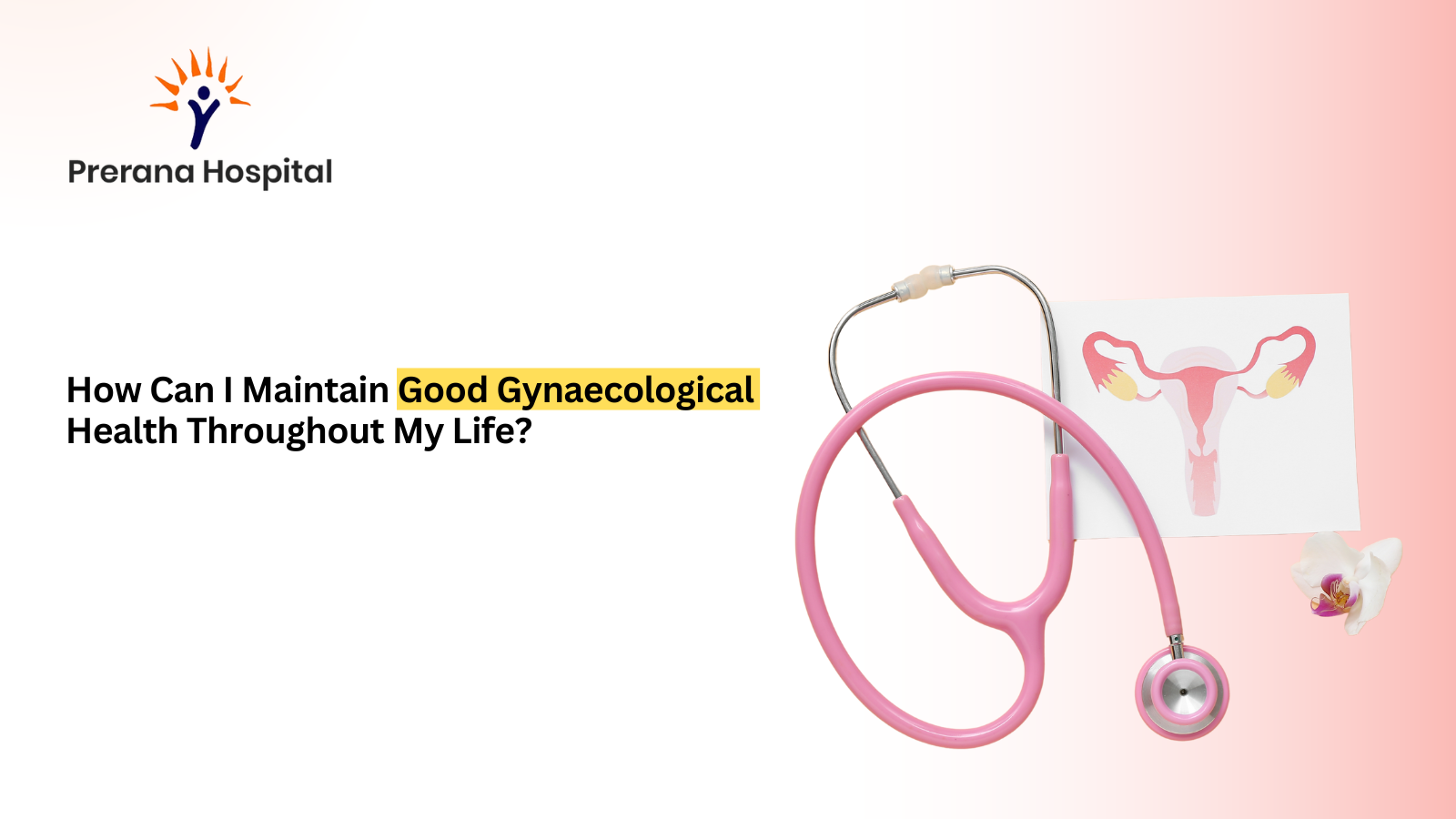

Please call +91 72042 70871 for outpatient appointments. The hospital is available for emergency 24/7.


Did you know that 70% of Indian women experience gynaecological health issues, yet many are unsure how to maintain good reproductive health? Maintaining good gynaecological health is crucial for overall well-being, regardless of age or lifestyle. From puberty to menopause, women's reproductive health requires attention and care to diagnose gynaecological problems in earlier stages where they can be easily treated and managed. Nevertheless, some women neglect their gynaecological health until the symptoms interfere with their daily life. These delays may increase your risk of infertility and other gynaecological health.
This blog covers essential lifestyle practices, preventive care, and holistic approaches to support women in achieving good gynaecological health.
Gynaecological health refers to the well-being of the female reproductive system, which includes the vagina, cervix, uterus, fallopian tubes, and ovaries. It includes reproductive and sexual health services, such as pelvic exams, cancer screenings, pap tests, and testing and treatment of vaginal infections.
The female reproductive system is linked to other bodily systems, such as the hormonal, urinary, and digestive systems. Therefore, any issues or imbalances in the reproductive system can affect overall health and well-being.
Regular gynaecology appointments enable the doctor to monitor any changes in the reproductive system, providing an opportunity for early intervention. Various gynaecological conditions, such as cervical cancer, sexually transmitted infections (STIs), fibroids, and ovarian cysts, can be identified through pelvic examinations, HPV tests, and cervical smear tests.
Early detection and personalised care can provide numerous benefits, including:
Various lifestyle factors help in maintaining good gynaecological health:
A well-balanced diet containing essential nutrients is vital in maintaining good gynaecological health, including:
In addition to these nutrients, you must drink plenty of water to maintain your cervical fluid.
Foods to Include
Foods to Avoid
Regular physical activity helps with weight management, improving hormonal balance, reducing stress, and boosting immunity. Here are some physical activities that you can incorporate into your lifestyle:
While these are general recommendations, older women or those with certain health conditions may consider low-impact activities like yoga, water aerobics, and swimming.
Stress can significantly impact gynaecological health, affecting menstrual cycles, hormone levels, and overall well-being. You can manage stress by these simple techniques:
Regular check-ups and screenings are crucial in detecting potential health issues early, allowing timely intervention and treatment. You can safeguard your gynaecological health and improve your overall well-being by staying proactive.
Here are some gynaecological screenings that you must undergo at regular intervals:
By following these simple guidelines, women can reduce the risk of infections:
Also, follow these safe sexual practices to avoid STIs:
While conventional medicine is critical in managing gynaecological health, incorporating holistic and alternative therapies can offer additional support and contribute to overall well-being.
Yoga combines physical postures, breathing techniques, and meditation to promote relaxation, reduce stress, and improve hormonal balance. Acupuncture involves the insertion of fine needles into specific points of the body to stimulate healing and balance.
Certain herbal remedies like chamomile, ginger, and peppermint may support gynaecological health. However, it is essential to consult with a healthcare provider before using them, as they can interact with medications or exacerbate underlying conditions.
While these complementary therapies can support your well-being, conventional medical treatment is essential for effectively managing your gynaecological conditions.
A balanced approach to gynaecological health combines the benefits of conventional medicine with the holistic principles of alternative therapies. This recognises that each individual's needs are distinct and that treatment should be customised to address specific health concerns, lifestyles, and preferences.
It’s essential to stay vigilant and recognise warning signs early to ensure that you receive the appropriate care without delay.
If you experience any of the following symptoms, seek help from a gynaecologist:
These symptoms can indicate underlying gynaecological conditions, such as endometriosis, PCOS, STIs, fibroids, etc.
Selecting the right gynaecology specialist is important for receiving expert care and support. When choosing a specialist, consider the following factors:
Maintaining good gynaecological health requires a proactive approach. Key lifestyle practices and preventive measures can reduce the risk of gynaecological issues. Holistic approaches, like yoga and acupuncture, can complement conventional care. Seek personalised advice and regular check-ups from a qualified specialist to ensure the best possible gynaecological wellness.
Want to take control of your reproductive health and well-being? Visit Prerana Hospital, a trusted facility for exceptional gynaecological care. Our gynaecologists ensure personalised attention and innovative treatments to address your unique needs. Schedule an appointment to venture on a journey towards improved gynaecological well-being.